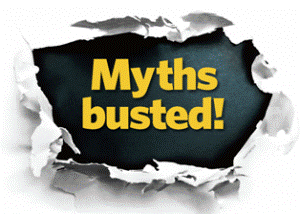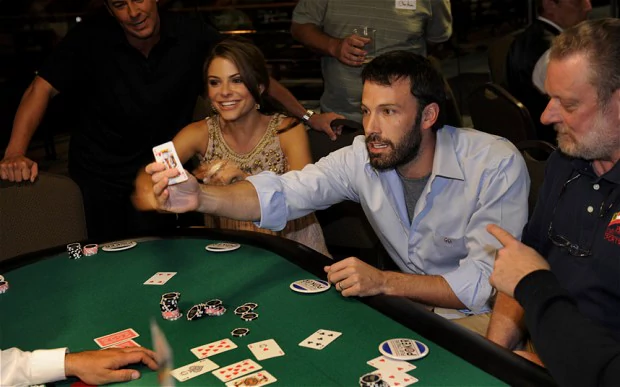To have skin in the game is to have a monetary stake that keeps you invested -“let the forfeit/ Be nominated for an equal pound/ Of your fair flesh”- in reaching your goal. Shakespeare employed the somewhat hair-raising figure of speech to unnerve, Warren Buffet revived it to awe, and Counter Strike: Global Offensive (CSGO) gambling sites derived it from Valve’s vernacular, the mother company that gave birth to the game of the new millennium and the fixation of its millennial generation.
Within the game, items to wage war with such as weapon crates with digital knives and guns pop-up to the sound of the ka-ching and the image of a key that players purchase for real money from Valve’s official weapon bazaar- the Steam Community Market- or other affiliate sites in order to unlock this heaven-dropped battle loot.
But whose skin is this?
The vicious cycle spins like so. You open a crate of skins. You buy those skins. You bet the skins. Or gamble them on shady websites that are eerily similar to slot machines. Or you bargain them away. You lose the skins. Or win some. Either way, you’re back to the start line of a game that plays more like a gamble.
From eSports gaming to casino gambling
War is expensive and draws all kinds of unsavoury characters to the battlefield.
As weapons started to be traded by the code name “skins”, and skins were arming the world of CSGO faster than a bullet and more covertly than lawmakers could keep track of the supplies, the game became fruitful ground for the war lords of eSports to flourish- dodgy gambling sites operating without licenses and outside standard Valve regulation.
The gaming industry was putting on the mafia cloak. And where there’s a lucrative market outside the vigilant gaze of the law - eSports betting is illegal across the US except in the state of Nevada- you can be sure you can also dig up an underground pipeline for the rogues of the industry.
The story of the CSGO gambler unfolds around a familiar common pattern. The Counter Strike player is usually a young millennial (men to a higher degree than women) who began to dig into the deeper levels of the game by becoming an avid collector of skins.
As Valve heavily promoted professional CSGO tournaments, the gamer/ gambler thought he could put those skins on the line. In case the wager turned out to be above his capacity, he would then turn to gambling sites like CSGO Lotto in an almost desperate attempt to win more skins on the flip of a coin or the roulette wheel.
The rare, collector-type skins can even go up to a few thousand dollars.
More Bureaucracy Under US Skin than in Russia?
Some countries like Russia have released more ban-happy watchdogs on the tail of gambling sites exhibiting suspicious activities while others- the U.S. included- seem to have gotten themselves tangled up somewhere at the crossroad of wanting the tax revenue that comes from gambling while having to answer to the public outcry and condemn unlicensed CSGO operators.
Valve Just Weathering the Media Storm
It wasn’t until 2017 that the UK secured the first prosecution of an unlicensed online gambling site. Two men, directors of Game Gold Tradings Limited promoting the site FutGalaxy.com were ordered to pay up a fee of up to $300,000 for selling virtual currency called FUT coins to gamblers under the age of 18.
Valve declared its intent to help battle the corruption, match-fixing, and cheating spread throughout the illegal CSGO gambling sites. However, it was their market’s API into which these unregulated transactions took root, giving Valve a high percentage cut from any maneuvers on the market.
Other parties that have allied themselves to the regulators’ efforts to track down CSGO mafia are ESL and Betway, both of them members of the Esports Integrity Coalition. A long battle stretches on the horizon, though, since eSports fans seem to develop a natural inclination for crypto currencies.
Counter Strike: Global Offensive YouTubers Found to Own the Gambling Sites
Taking advantage of a lack of legislation and Valve’s impassiveness, illegal gambling websites that allow for underage children to use skins as stand-ins in order to bet on professional matches are increasing by the day.
Below we have two infamous examples that could act as warning signs for whomever cares to see.
Syndicate Cassel and Tmartn Martin’s Get Rich Scheme
Despite their own declarations of independent and honest advertising, high-profile influencers stand at the heart of the recent CS:GO scandal. Two major YouTubers, Tom Syndicate Cassel and Trevor Tmartn Martin, have been accused of promoting skin gambling to their 10 million YouTube subscribers on a website that they owned, CS:GO Lotto.
Notwithstanding that the website (now blocked, but not closed) allowed players as young as 13 to skin-trade as in a gambling hall, the two CSGO gamblers did not disclose at any time that they owned the site. Rather, they “had found it by chance”.
The worst criticism, however, highlighted the tweaking of the odds as Cassel and Martin were accused of rigging their site so that they won big. Live, online.
Moe “moE” Assad, the CSGO Diamonds’ best friend
The news of the CSGO Lotto controversy was just gathering dust in the archives when another Counter Striker was revealed to have been offered 20% of CSGO Diamonds’ revenue to gamble live on his stream.
While the whole affair was dropped because of a disagreement between the two parties involved, Moe “moE” Assad may have received more than ready to disclose.
His severance for a few months of abusing his followers’ trust and pitching a gambling site to children is said to amount to 170 Bitcoin. Converted into your usual, traceable currency, the sum spells $112,000.
Valve continues in its half-hearted venture to cease and desist illegal CS:GO sites which skirt traditional gambling regulation, but are the revenue numbers they rake in too enticing and the subliminal free advertising that their eSports tournaments get too profitable for them to completely wipe out the ghost market?
- Undergoing an intensive process of governmental legitimization, the eSports industry will be soaring by 41% in value in 2017. That translates to a revenue of $700 million to $1,5 billion by 2020, says a report by NewZoo. What will the online gambling industry bring to the party?
- In the US, according to a report by Eilers & Krejcik Gaming and Narus Advisors, 60% of the $5billion worth of GSCO skins gambled during eSports events were traded by shady third-party websites and fly-by-night casino style digital bookies.
- Since 2014, the Gambling Commission in the UK had identified more than 100 unlicensed and unregulated gambling sites. The virtual currency was in use for 16 of these illicit digital eSports bookies.
Will Valve sacrifice its API in order to run a global offensive against unlicensed CSGO gambling sites and deter dishonesty from YouTube Jacks who score Bitcoins by their popularity points? Let the numbers above talk, and you will get a sense of what’s to come. After all, the objective of the game is to collect the most counters.



















